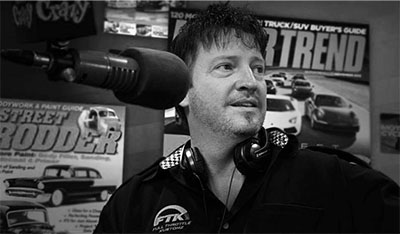

Choosing a shop for a custom tune.
By Ray McClelland Sr. – Full Throttle Kustomz
How do you choose???
With the amount of tuner shops that have been popping up all over the country in the recent years, you really have to wonder… how do you choose the right shop for you?
Start with the Basics - Ask this Critical Question:

Is the tuning and shop work actually being performed by properly trained technicians and mechanics? Is the shop simply jumping on the band wagon of trying to be the next “great tuner shop?” Some guys will open a shop just because the they have a race car and won a trophy or two.
The question of how to choose a shop is a question that pops up more often than not. Or worse, you didn’t ask the question – until after your car’s in the hands of a shop who wasn’t carefully vetted first… Everyone has heard the horror stories of the person who buys a brand new vehicle, take it to the nearest high performance shop for a “custom tune” – and instead of the shop handing a set of keys to a car making more horsepower, they are handed a copy of a waiver they signed saying …”the shop is not liable for any dyno tuning done…” along with a piece of their engine called a piston skirt!
No, All Tuning Shops are NOT the Same...
Choose Your Information Sources Carefully
If I can offer one MAJOR piece of advice to you, that would be to do your homework! Ask questions – and I don’t mean ask questions on a Website forum where there are hundreds of haters – who don’t actually want you making more power them. Forum trolls will pretend to be the know-it-all based on of exaggerated theories – but for some reason they have no training whatsoever – and work at Mcdonalds® for a living! I mean no disrespect to anyone working at Mcdonalds® especially with the economy the way it is we all have to do what we have to do to make ends meet. But there are way too many magazine readers on the forums that think if they do three mods to their car – and they each advertise a 5hp gain – that without even being on a dyno (with before and after runs) they will be making 15 more hp! At some point people need to think more clearly and realize that magazines are written on a 10th grade level so that readers are not lost to articles that are “too technical” and are mainly based on advertising dollars. Forums are not the place for doing All of your homework. I say All because the Internet can definitely be an asset. Just be sure that what your reading makes sense. Sorry for that little tangent but being a shop owner you get to see all types of people over the years. “To thine own self be true…”
It's Just Not That Complicated...
Now let’s get down to the basics, and get these questions answered because it really is simple!
1. Does the shop have a history of tuning vehicles similar to yours, e.g., GM/Ford/Nissan, etc?
2. How long has the shop been tuning, and what is their expertise? For example, do they work predominately or carburetors or on EFI tuning? Too many shops have been known for tuning carbureted applications, but they see the demand for EFI tuning, want the work, and take it on thinking they can handle it. But truly, they do not have the expertise to do so effectively. Breadth of tuning experience is hugely important!
3. Where did the shop you’re considering they get their training? What is their actual level of training? For example, SCT will sell software to practically anyone. But you have to go through their training to achieve calibrator-level capability otherwise you only have 1/3 of the performance variable in the software included to adjust. Drive-by-wire? Forget that… unless you have been through their advanced courses! Yes, training and the breadth of a shop’s software capability matter!
4. What type of dyno are they tuning on? Years ago when all cars were carbureted and they didn’ have computers with spark tables based on load, an inertia type dyno was okay for tuning. It got the car close enough, and the final “dialing in” came at the racetrack. It is very simple folks. If you have a fuel injected car, and want it tuned properly, get it tuned on a dyno that is a “loaded” dyno. This is the only way a car can be properly loaded so the higher spark levels can be attained for tuning. If not… well, this is where the stories come from when a car was just dyno tuned and the graphs looked great; but then when the car was driven on the street it shot a connecting rod out the side of the block… Yes, equipment type matters too in tuning!
5. Ask questions about how they tune! How long does it take? What are the costs involved for your specific setup? A tuner may be good with naturally aspirated car, but will not have the critically needed knowledge for performing a safe tune with a supercharged or turbo application. This also holds true to tuners that may be good with a 500hp blown application – but no experience with a 1000hp application. Yes, there are significant differences!
6. One final thing… Run like hell from any shop that wants to put your car on a dyno, do three pulls and hand you back a “custom tuned” street car!!! 3 pulls are wide open throttle, air fuel checks and if you have a blown application most of the time it is too late before you know your car was a little lean, and guess what… You just became a statistic! We all know that street cars are not driven 100% of the time at wide open throttle. Prepare to invest what is needed to get the right tune. It’s your car, not an easily replaceable toy.
Ray McClelland Sr. – Full Throttle Kustomz
Ray writes articles from time-to-time to guide car enthusiasts and racers to the best possible solutions for their performance goals.

Bring Your Car or Vision to Full Throttle Kustomz
We Deliver performance. We’ll see you at the shop.


